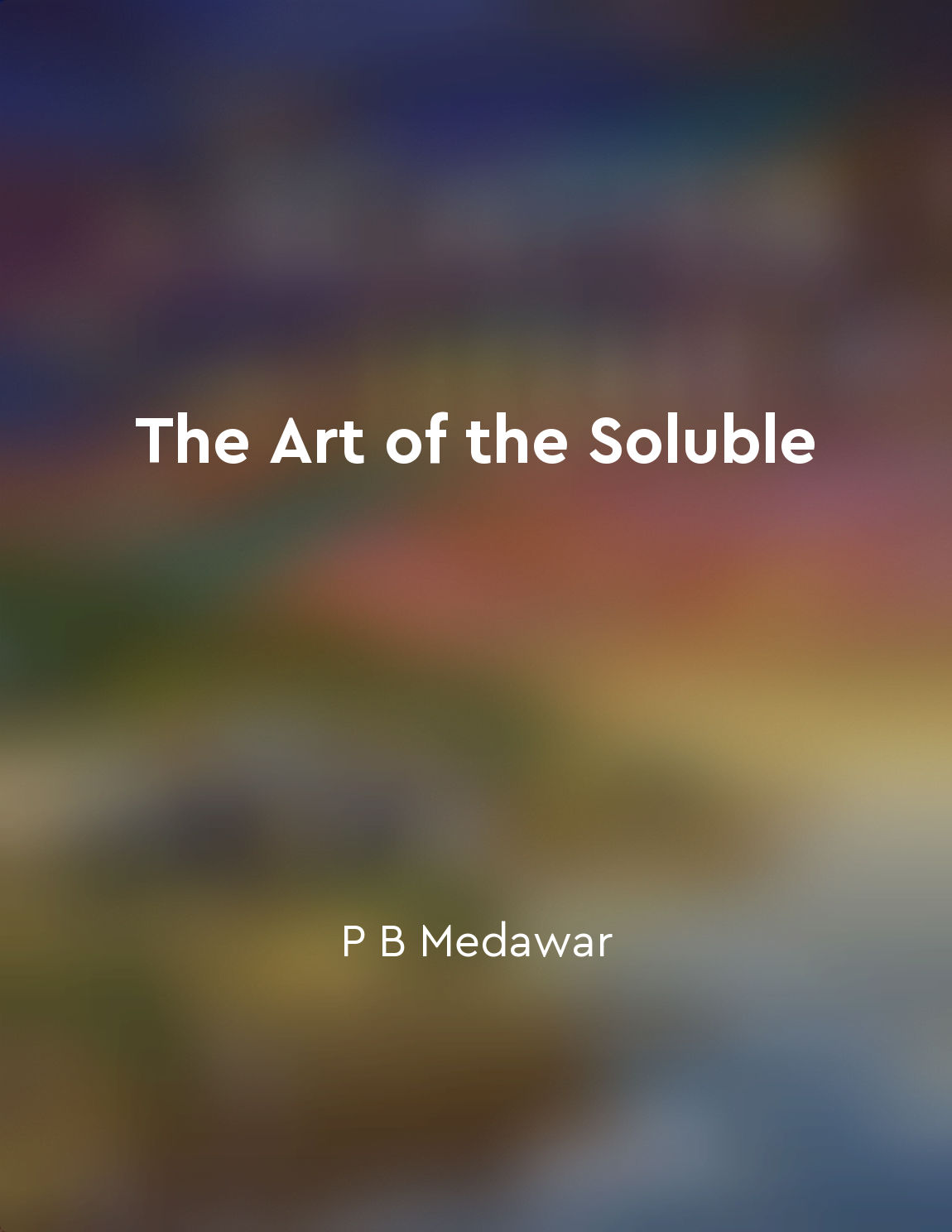Rhetoric plays a crucial role in shaping scientific arguments from "summary" of Leviathan and the Air-Pump by Steven Shapin,Simon Schaffer
The use of rhetoric in shaping scientific arguments is not simply a matter of style; it is a fundamental aspect of how scientific knowledge is produced and validated. The persuasive power of rhetoric is essential in convincing others of the validity of one's claims, especially in the context of scientific debates where different interpretations of evidence are at stake. Through the strategic use of language, scientists not only present their findings but also construct a narrative that positions their work within broader disciplinary frameworks. In the case of the Boyle-Hobbes debate over the air-pump, for example, both sides used rhetorical strategies to bolster their arguments and undermine their opponent's position. Boyle's emphasis on the experimental method and the authority of the Royal Society helped to establish his credibility as a reliable source of knowledge. Hobbes, on the other hand, relied on logic and reason to critique Boyle's experimental practices and question the validity of his claims. By engaging in these rhetorical strategies, both Boyle and Hobbes sought to persuade their audiences of the strength of their arguments and the weakness of their opponent's positions. Furthermore, the use of rhetoric in scientific arguments is not limited to the realm of discourse; it also plays a crucial role in shaping the material practices of scientific inquiry. The design of experiments, the interpretation of data, and the presentation of results are all influenced by rhetorical considerations. Scientists must not only make convincing arguments but also adhere to established conventions of scientific communication in order to have their work accepted by the scientific community.- The relationship between rhetoric and scientific arguments is a complex and dynamic one. While rhetoric can be used to manipulate and deceive, it can also be a powerful tool for advancing knowledge and challenging established paradigms. By understanding the role of rhetoric in shaping scientific arguments, we can gain insight into the ways in which scientific knowledge is produced, validated, and contested in the ongoing pursuit of truth.
Similar Posts

Embracing uncertainty and embracing failure
When you're doing an experiment, you have to be open to the possibility that things may not go as planned. You can't be afraid ...
Voice modulation can help convey different emotions and tones in your speech
Voice modulation is a powerful tool that can significantly enhance the impact of your speech. By varying the pitch, tone, pace,...
The authors highlight the role of rhetoric in scientific discourse
The role of rhetoric in scientific discourse is a central theme in this work. The authors delve into the ways in which language...
The debate centered on the legitimacy of experiments
The focus of the debate was on the legitimacy of experiments. The question at hand was whether experiments could be considered ...

Intellectual honesty is crucial in scientific inquiry
Intellectual honesty in scientific inquiry is a foundational principle that cannot be overlooked. It is essential for researche...

